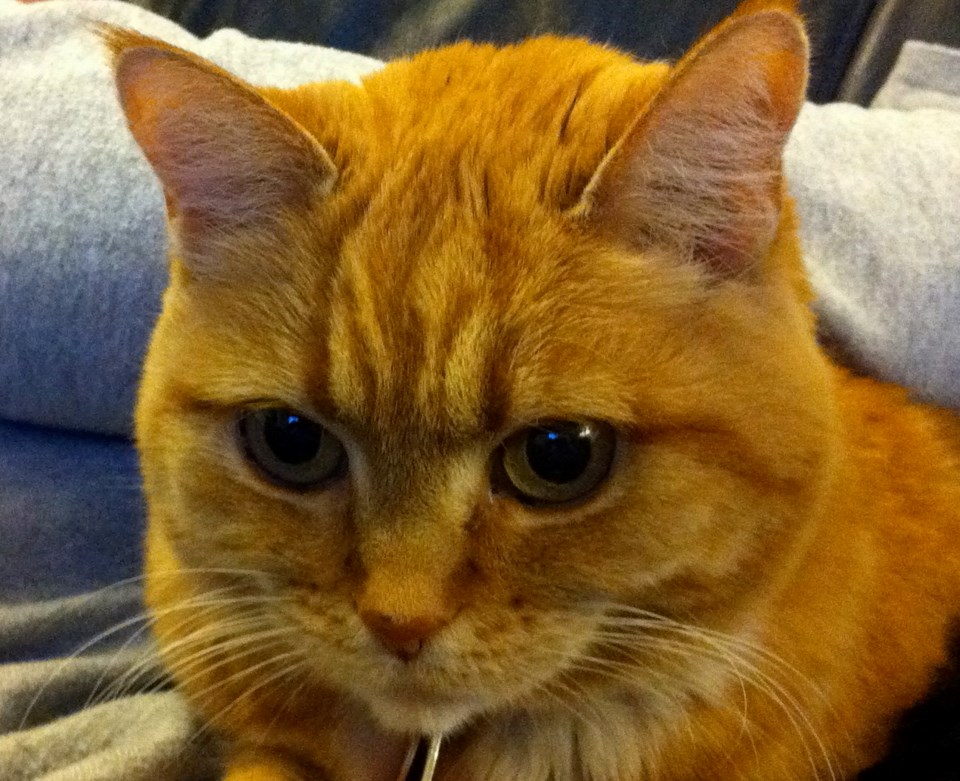Cats should be licensed and not allowed to roam freely outdoors to protect wild birds, says the Victoria Natural History Society.
The 750-member society, dedicated to the preservation and protection of Victoria’s natural environment and its creatures, has sent a letter to all 13 municipal councils in the capital region asking them to adopt regulations to control cats, including:
• Mandatory neutering of all cats over six months of age unless an owner purchases a permit for breeding or medical exemptions.
• All cats must be licensed and vaccinated against rabies.
• All cats must be confined to their owners’ property. When off premises, they have to be physically restrained or leashed.
Philip Lambert, president of the Victoria Natural History Society, said his group has long advocated for control of cats to protect wildlife, notably birds.
The letter was sent after members noticed cats stalking ducks and ducklings near Mystic Pond in Cadboro Bay, Lambert said.
He said only Colwood has acknowledged the letter.
“They said: ‘Thank your for your letter and there will be no further action,’ ” Lambert said.
Victoria Mayor Lisa Helps responded by email Friday to an inquiry from the Times Colonist to say she is “absolutely not” interested in regulating cats.
“We don’t have the resources to do so,” Helps said.
Ann Nightingale, a member of the Victoria Natural History Society, said some regulation is long overdue and pointed to studies which list cats as a major killer of wild birds.
A 2013 Environment Canada study, A Synthesis of Human-related Avian Mortality in Canada, listed cats as the largest human-related bird killers, ahead of buildings and automobiles.
Nightingale said she speaks not only as a lover of wild birds — she is also an owner of cats, which she keeps indoors except for an enclosed patio and, sometimes, on a leash.
She started keeping her cats indoors for their own safety after felines started disappearing from her neighbourhood. Since that decision, her vet bills have plummeted because her cats no longer get into fights, pick up infections or eat poisons.
“You wouldn’t think of letting your hamster roam free, even though it might actually prefer it that way,” Nightingale said. “It seems cats are the only pets that people regard as disposable.”
She said Victoria is “behind the curve” when it come to looking out for cats and cited the City of Calgary as a good example of responsible cat control.
In Calgary, cat owners pay $18 a year for an adult neutered pet and animals must have an identification tag, tattoo or implanted microchip. Owners must also keep their pets on their property. Tara Lowes, in charge of Calgary’s animal service centre, said it was controversial when cats were first included in animal control bylaws in 2007.
Fewer cats are now being put down, being picked up and left unclaimed, she said, and last year the only euthanized animals were sick or injured.
She said all the veterinary advice provided to Calgary’s animal control officers says that when cats are kept indoors they will live longer and healthier than cats allowed to roam. Indoor cats don’t face the risks of cars, fights, predation or disease.
“Cats do not need to go outside to live out any hunting instinct,” Lowes said. “You can satisfy that indoors with a wand, or a toy or play — it’s all perfectly satisfying for an indoor cat.
“We just believe cats live longer, happier, healthier lives if they are kept indoors.”


